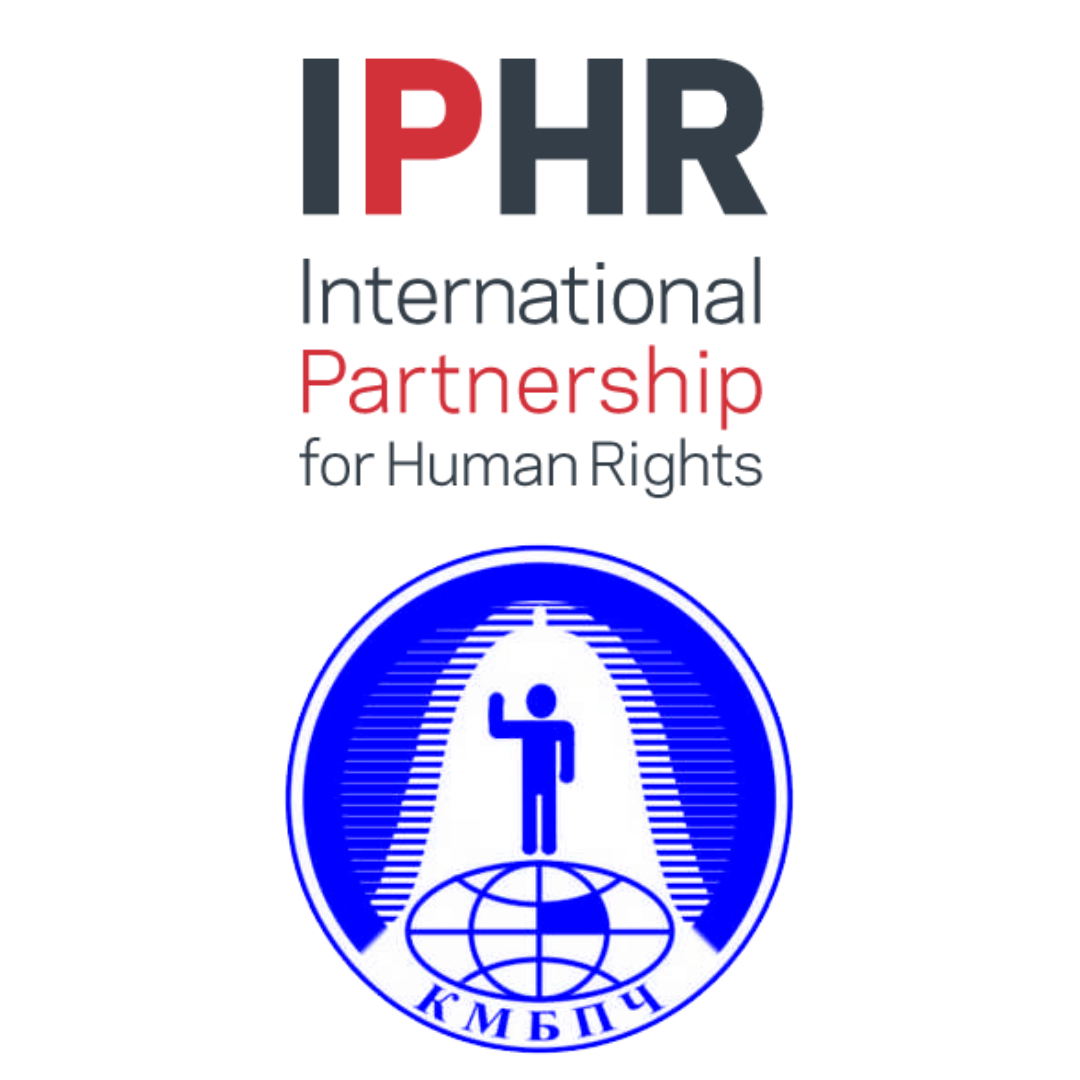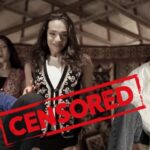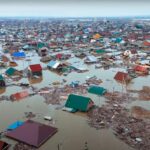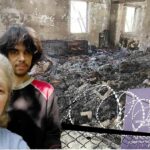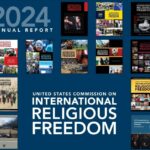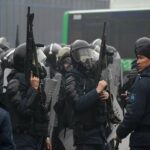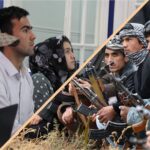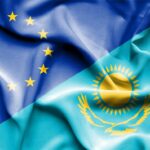International Partnership for Human Rights (IPHR) and Kazakhstan International Bureau for Human Rights and Rule of law (KIBHR) consider the seven-year prison sentence handed down to opposition party leader Marat Zhylanbaev to be a shocking illustration of the Kazakhstani authorities’ lack of commitment to genuine democratic reform. We believe that the harsh sentence was retaliation for Zhylanbaev’s peaceful opposition activities and intended as a warning to other vocal government critics. We call on the authorities to immediately and unconditionally release him.
A local court in Astana issued the sentence against Marat Zhylanbaev, who leads the unregistered opposition party “Alga, Kazakhstan!” (“Forward, Kazakhstan!”), on 29 November 2023 after finding him guilty of involvement in a banned extremist organisation and financing of extremist activities (under articles 405 and 258 of the Criminal Code). The court also banned Zhylanbaev from engaging in public and political activities for three years. The verdict was read out an online hearing, which was closed to the public. Zhylanbaev’s lawyer Meirzhan Doskaraev stated that the defence would appeal the ‘’unlawful verdict’’.
Zhylanbaev was arrested in the criminal case opened against him on 23 May 2023. That was the same day as he was due to be released after serving an administrative sentence of 20 days’ detention issued to him because of his participation in a peaceful unsanctioned protest against the policies of the authorities in the capital in March 2023. On the day of his arrest, police also carried out a search of his home. He has been held in detention since then, with the trial in his case starting on 30 October 2023. At the beginning of the legal proceedings, the court announced that the trial would be held behind closed doors due to the safety concerns of two undisclosed witnesses. Zhylanbaev sew his mouth shut and launched a hunger strike to protest against this decision, and his lawyer petitioned for the decision to be reversed. However, the court did not change its stance and as a result Zhylanbaev’s family, his supporters, observers and journalists were not allowed to attend the trial, which reinforced concerns about the lack of fairness of the proceedings. In a related development, Zhylanbaev’s lawyer received a disciplinary reprimand from the regional bar association for allegedly disclosing information about the investigation without permission, which appeared to be another attempt to prevent transparency of the case.
Zhylanbaev was accused of involvement in ‘’extremist’’ activities because of his alleged contacts with activists from the Democratic Choice of Kazakhstan (known as DVK), an opposition movement that was banned as ‘’extremist’’ in Kazakhstan in 2018 despite its non-violent nature, and its exile-based founder Mukhtar Ablyazov. According to a press release issued by the court, Zhylanbaev allegedly received orders and instructions from Ablyazov and his associates aimed at ‘’forcibly changing the constitutional order’’ and provided financial, information and other services to them ‘’knowing they would be used for extremist activities’’. However, while human rights defenders were not allowed to monitor the trial, available case materials indicate that Zhylanbaev was held accountable for activities that constitute legitimate exercise of the rights to freedom of expression, association and assembly and have nothing to do with violent ‘’extremism’’, such as participation in group chats, social media posts and reposts, and peaceful protests on issues of concern to him. Moreover, it is clear from the case that it is precisely Zhylanbaev’s criticism of the current authorities and his calls for political reforms that are considered ‘’extremist’’. For example, an expert study ordered by the investigation concluded that social media posts published by Zhylanbaev, in which he criticised President Kassym-Jomart Tokayev’s policies and demanded constitutional amendments to strengthen the parliament’s role, amounted to ‘’extremist’’ propaganda.
Zhylanbaev was further accused of ‘’financing terrorism’’ because of bank transfers he made to co-activists to help them cover fees required for the registration as self-nominated candidates in the March 2023 parliamentary elections. The transfers were considered as support of ‘’extremist’’ activities because they were made to alleged supporters of the DVK, even if the recipients have not been convicted of any extremist crimes. Zhylanbaev also attempted to run in the parliamentary elections himself but was excluded from the race after being accused of unlawful election campaigning due to social media posts asking for contributions to cover candidate registration fees.
The lack of any substantial basis for the ‘’extremist’’ charges against Zhylanbaev shows that they were initiated to penalise him for his opposition activities and his criticism of the authorities. The Alga, Kazakhstan! party led by him was founded following the ‘Bloody January’ 2022 events, when President Tokayev announced a political modernisation programme and promised to make it easier for political parties to register. However, since spring 2022, the Ministry of Justice has refused to accept the application for registration filed by Alga Kazakhstan! more than 15 times due to alleged mistakes in the application documents. At the same time, Zhylanbaev and other Alga activists have been subjected to intimidation and harassment on an ongoing basis, including by being detained and penalised for peacefully protesting against government policies and voicing demands such as for holding fair elections, releasing political prisoners, and allowing for an international investigation into the January 2022 events.
No other real opposition party has been registered in Kazakhstan either and members of other opposition groups have also been subjected to pressure, including criminal prosecution. In particular, in a campaign going on for several years, the Kazakhstani authorities have misused the fight against ‘’extremism’’ to target dozens of opposition activists accused of involvement in the DVK and the “Koshe Partiyasy’’ (‘’Street Party’’), another non-violent opposition movement that was banned by court in 2020. In a similar vein as Zhylanbaev, others convicted of ‘’extremist’’ crimes due to their alleged association with these movements have been charged because of unsanctioned protests, social media posts and other peaceful civic activities. However, in most cases, those previously convicted have been given non-custodial so-called restricted freedom sentences rather than real prison sentences.
There have also been earlier convictions of opposition group leaders. For example, in April 2023, Zhanbolat Mamay, the leader of the unregistered opposition Democratic Party, was convicted on spurious charges of organising mass riots and knowingly spreading false information. Unlike Zhylanbaev, he got a suspended prison sentence, but could be imprisoned if he is found to violate to conditions of his release. Mamay was also prohibited from conducting political, civic or social media activities for the period of his sentence – six years. In another recent case, Nurzhan Altaev, who leads the unregistered “El Tiregi” (“People’s Pillar”) party, was sentenced to 10 years in prison on charges of bribe taking following a trial that similarly was held behind closed doors with reference to safety concerns of a witness.
Against this background, it is clear that the case against Zhylanbaev fits into a pattern of politically motivated persecution of opposition movements and activists in Kazakhstan. The Expert Council of Kazakhstani Human Rights Defenders has also recognised Zhylanbaev as a political prisoner.
Long before Zhylanbaev first got engaged in opposition activities in 2016, he was a world-renowned marathon runner and became the first person to run through the world’s largest deserts alone. After the end of his running career, he worked as a marathon trainer.
IPHR and KIBHR urge the Kazakhstani authorities to prove that they are serious about their proclaimed commitment to democratic reform, to stop persecuting peaceful opposition movements and activists, and to promptly release Marat Zhylanbaev and others who have been unjustly imprisoned in the campaign against government critics.


